Key Information
CPD Hours: 8 hours
Course Length: One day
Course Format: Lectures, case-based discussions and practical sessions
Enrol Now
Alternatively you can download and email using our Registration Form
Course Information
- Methods for the measurement of calf immunity
- Overview of how well UK farms are performing in comparison to current suggested benchmarks
- Use of calf signals to learn what your calves are telling you
- Understanding how to identify the strengths and weaknesses of your calf rearing practices
- The impacts different types of calf housing has on the environment within which calves live
- Discussion of subclinical pneumonia, its significance and interactions with clinical signs of respiratory disease during the pre-weaning period
- To understand the theory of calf thoracic ultrasonography, and gain practical experience in its use
Are you faced with the re-occurring problems of sick and unthrifty calves, and are looking for an evidence-based understanding, along with practical applications on farm?
This course will provide you with the latest evidence on optimal calf rearing strategies using an integrated approach covering aspects of health, behaviours and environmental housing.
It will cover methods for the measurement of calf immunity and how they are associated with outcome measures such as disease and mortality. We will then cover how well UK farms are performing in comparison to current suggested benchmarks.
We will look at the impact the housing environment has on calves, including consideration of how to manage different group sizes from individual and pair housing, through to group housing situations.
We will cover the growing appreciation of how subclinical pneumonia impacts the respiratory health of calves, and how thoracic ultrasound can be used to identify this in practice.
Finally, a fully trained cow signals tutor will cover some of the key youngstock signals that can help you to understand how behaviour can inform you about what your calves are telling you, whether they are getting enough to eat, and if they are growing to meet farm targets.
The course format includes comprehensive notes, which will be useful in practice for referencing. The morning will consist of seminars with plenty of time for questions and discussion, enhanced by many years of practical and academic experience of all involved. The afternoon will then be at the RVC’s farm, carrying out practical calf signals assessments, environmental monitoring and thoracic ultrasonography.
Nicola Blackie, BSc(Hons) PhD FHEA
Senior Lecturer in Production Animal Science
The Royal Veterinary College
George Lindley, BVetMed MVetMed PGDipVCP DipECBHM MRCVS
PhD Student
The Royal Veterinary College
Sophie Mahendran, BVMedSci BVMBVS(Hons) MSc(VEPH) DipECBHM PGCertVetEd PhD FHEA MRCVS
Lecturer in Farm Animal Health and Welfare, RCVS Specialist in Cattle Health and Production
EBVS® European Veterinary Specialist in Bovine Health Management, The Royal Veterinary College

